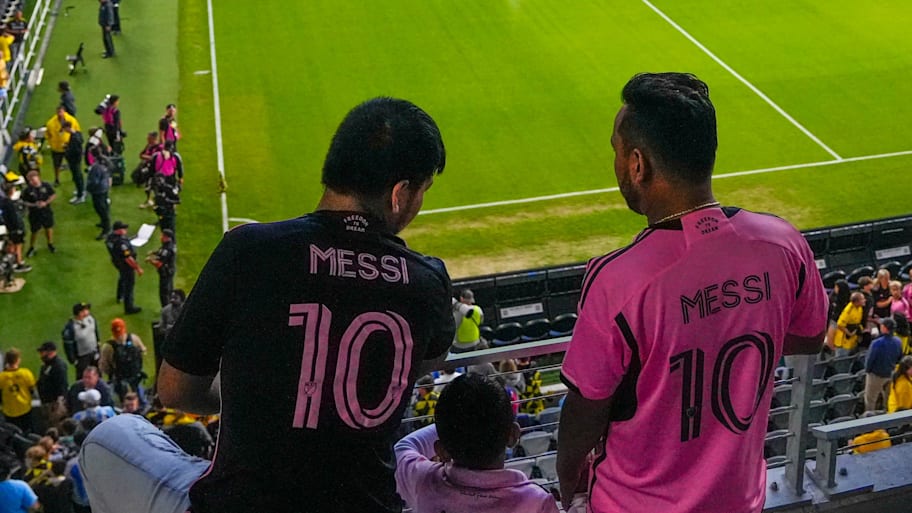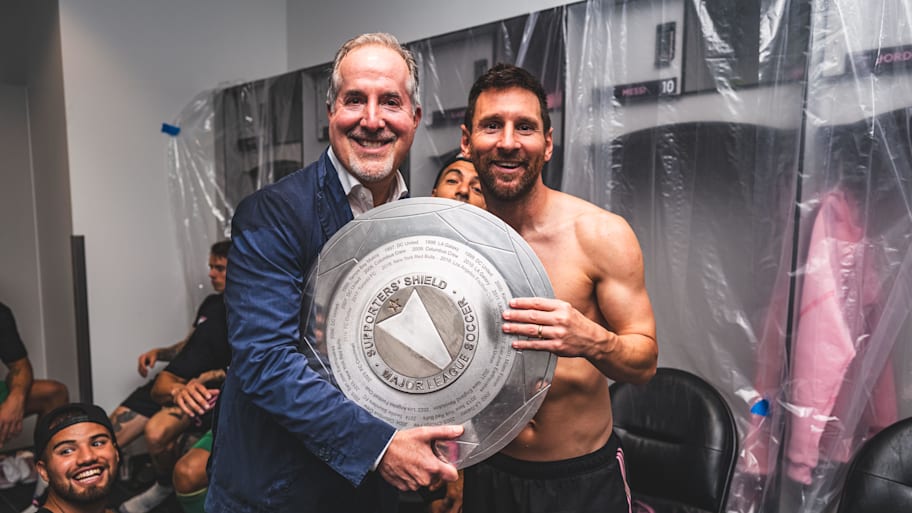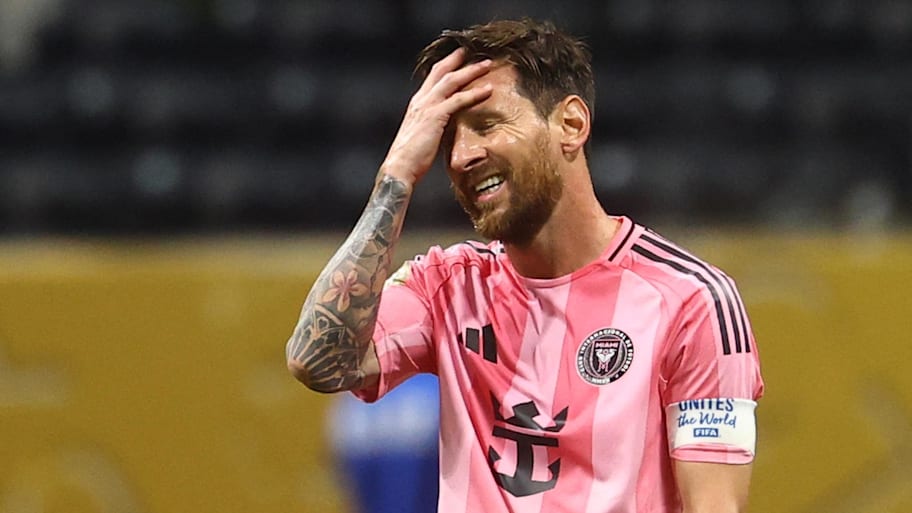There are few moments where sporting history is made by a single decision.
Many of the most pivotal points come through long-awaited, thought-out plans or fleeting moments during competition. It’s rare a crucial juncture can come down to hours, and potentially define the next generation of a league.
Yet, that’s what MLS has faced with Lionel Messi and Jordi Alba since Wednesday.
After the Inter Miami duo skipped the MLS All-Star Game, MLS weighed the decision and eventually opted to uphold its rule, suspending players who missed the event rather than deeming Messi and Alba a special case.
It’s a defining point for the league, and one that could impact the future of the MLS All-Star Game, the rules, Messi's future in MLS and the attraction of the American top flight to the world’s best players.
“His decision [to skip] is not one that I really can argue with whatsoever and I understand it,” MLS commissioner Don Garber told The Athletic. “It was a very, very difficult decision, but one I hope both [Messi] and everyone else can understand and respect. He has shown up for his club, for his teammates, for our league time and time again and I respect his decision.”
Although some opposing MLS clubs and fan bases may quibble with the way Inter Miami approached building their roster, or the attention placed on Messi and the Herons’ project, the decision to put the league rule over Miami brought reassurance of integrity to the competition.
Ultimately, it was a test as to whether Messi was a bigger entity than the league as a whole. And despite his lavish $20 million-per-year salary, and stakes in MLS Season Pass on Apple TV and other business avenues, the decision proved he is, indeed, just another player in the league—albeit a very prominent one.
At the same time, it is also not the first time MLS has upheld its ruling against a star player, previously doing so in 2018 when Zlatan Ibrahimović skipped the All-Star Game during his time with the LA Galaxy.
“They do whatever they want. I come from a different world,” Ibrahimović said at the time. “This is ridiculous. I come from the real world. It is what it is. I respect it in the end, and I’m sorry for my teammates only that I could not help them in the game.”
Firestorm Around Messi Fans

The suspension created a firestorm around MLS and among some supporters who follow Messi, rather than a specific club such as Inter Miami.
While his inclusion in the All-Star Game would have lofted the event’s popularity, his absence from a critical match against FC Cincinnati also deters some from watching the league, giving up valuable viewership and the entire reason Messi was brought into the league.
“The decision for Messi and Alba not to go was a club decision," Inter Miami co-owner Jorge Mas said. "This rule is bad, but it’s still a rule. The club knew the consequences and even so chose not to allow them to go, we don’t want injuries. Every Miami game is already an All-Star Game.
“Messi and Alba are different from other players—you know why? Because they are winners, look at the career they’ve built, they want to play and compete in serious games. ... I think the punishment for the rule is draconian.”
Since mid-April, Messi has played 90 minutes in nearly every match, and has played 23 games in 2025 that have seen him play more than 80 minutes. Yet, despite being 38 years old, he is the key to Miami’s success, and the recent spell has seen him score 10 of Miami’s last 13 goals since the FIFA Club World Cup.
Now, without him in a pivotal match against Cincinnati, Inter Miami could be giving up a significant chance at defending their Supporters’ Shield, while the league loses out on viewership, and a regular-season MVP battle between Messi and Cincinnati’s Evander, who did attend the MLS All-Star Game.
“When Messi plays, Messi plays 90 minutes and if you see him playing less, he’s injured. That’s how Lionel has played here and will continue,” Mas added, after manager Javier Mascherano mentioned that Messi was fatigued. “Load management is on Lionel Messi. Logic would tell you we would love him to sit with big leads. It’s not going to happen.”
Messi’s Contract Status

Among the biggest concerns of suspending Messi and Alba was likely Messi’s contract, which is set to expire at the end of 2025. It leaves him the option to pursue another league before likely playing in the FIFA World Cup 2026 in the United States, Mexico and Canada—a true nightmare scenario for MLS.
Until Friday, MLS and Inter Miami had seemingly done everything possible to please Messi, and set him up for success and enjoyment, in order to reap the benefits of having the greatest player ever as the face of the league.
However, with no new contract, MLS could have put Messi’s trust at risk—even with his club securing his friend and longtime Argentina teammate Rodrigo De Paul.
“The reaction was exactly as expected: Not positive ... they don’t understand the decision. They don’t understand why not attending an exhibition match leads directly to a suspension,” Mas said. “Leo’s extremely upset. I’m hopeful it doesn’t have an impact long-term.”
Only time will determine how the repercussions will unfold and what the future of Messi, the All-Star Game and superstars' relationships with MLS will come to be. But Friday’s decision will be seen a critical moment, one where MLS chose itself over its superstar.
READ THE LATEST MLS NEWS, TRANSFER RUMORS AND GOSSIP
This article was originally published on www.si.com as Why MLS Had to Ban Lionel Messi—and the Potential Fallout That Could Come.
